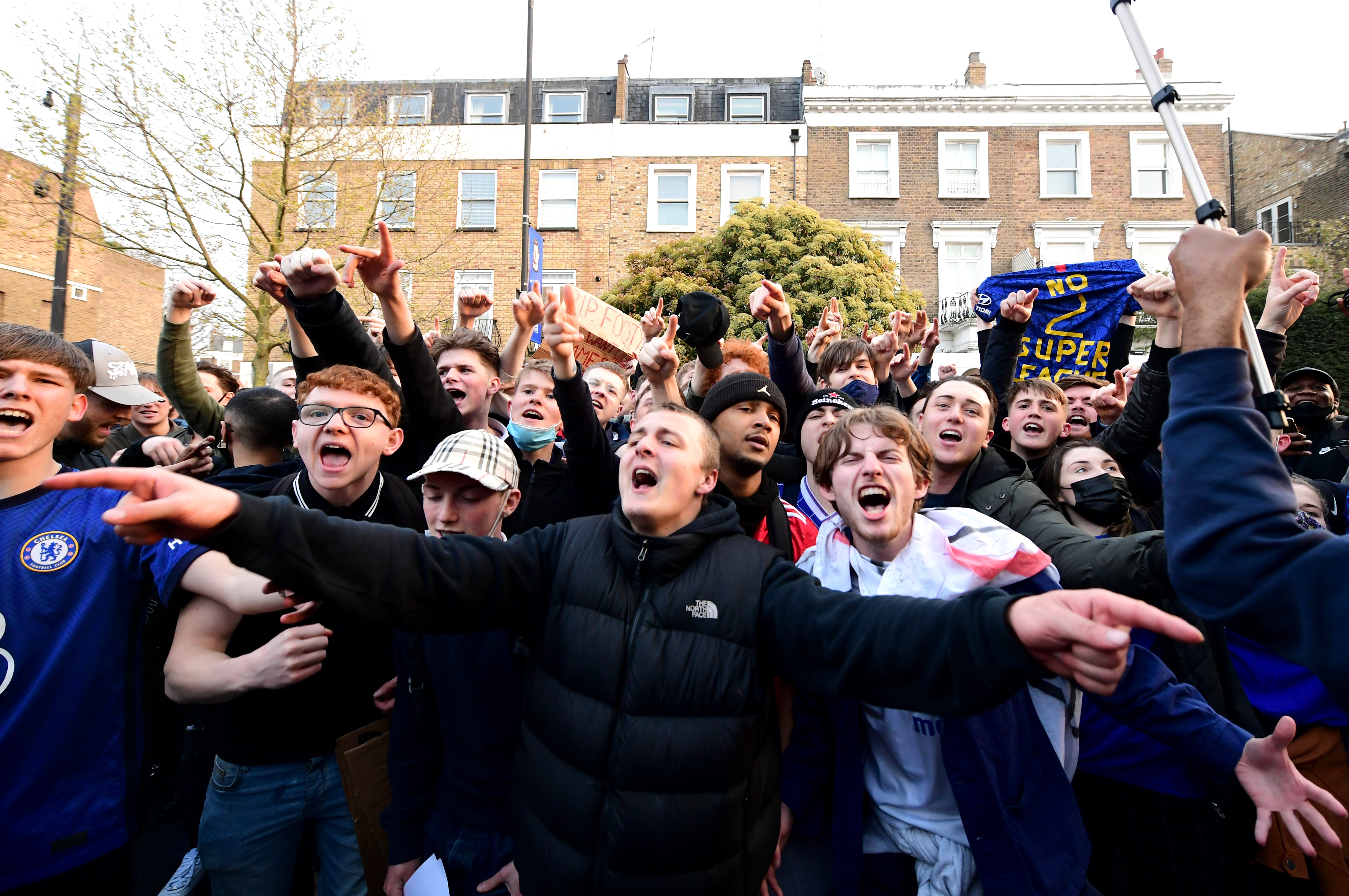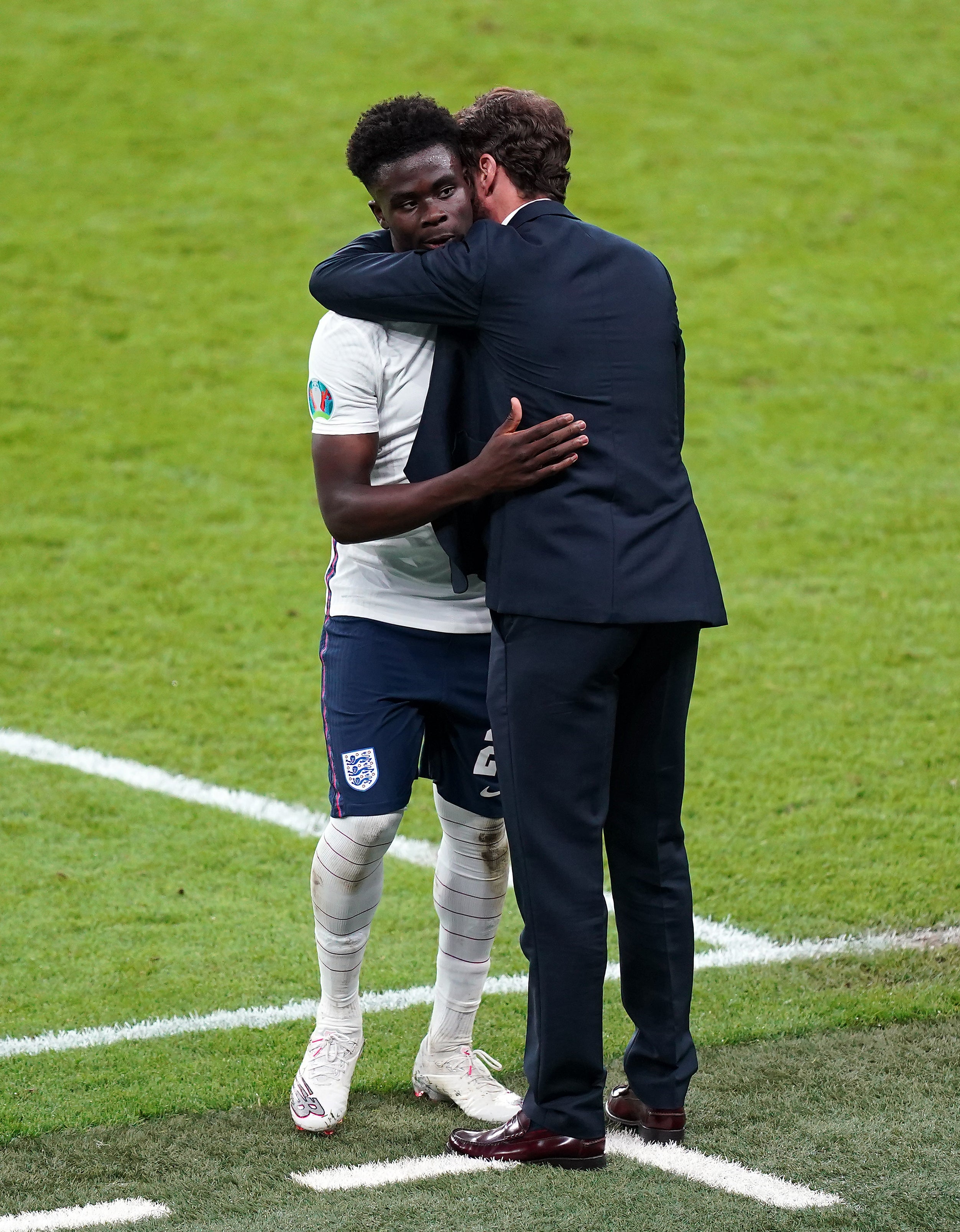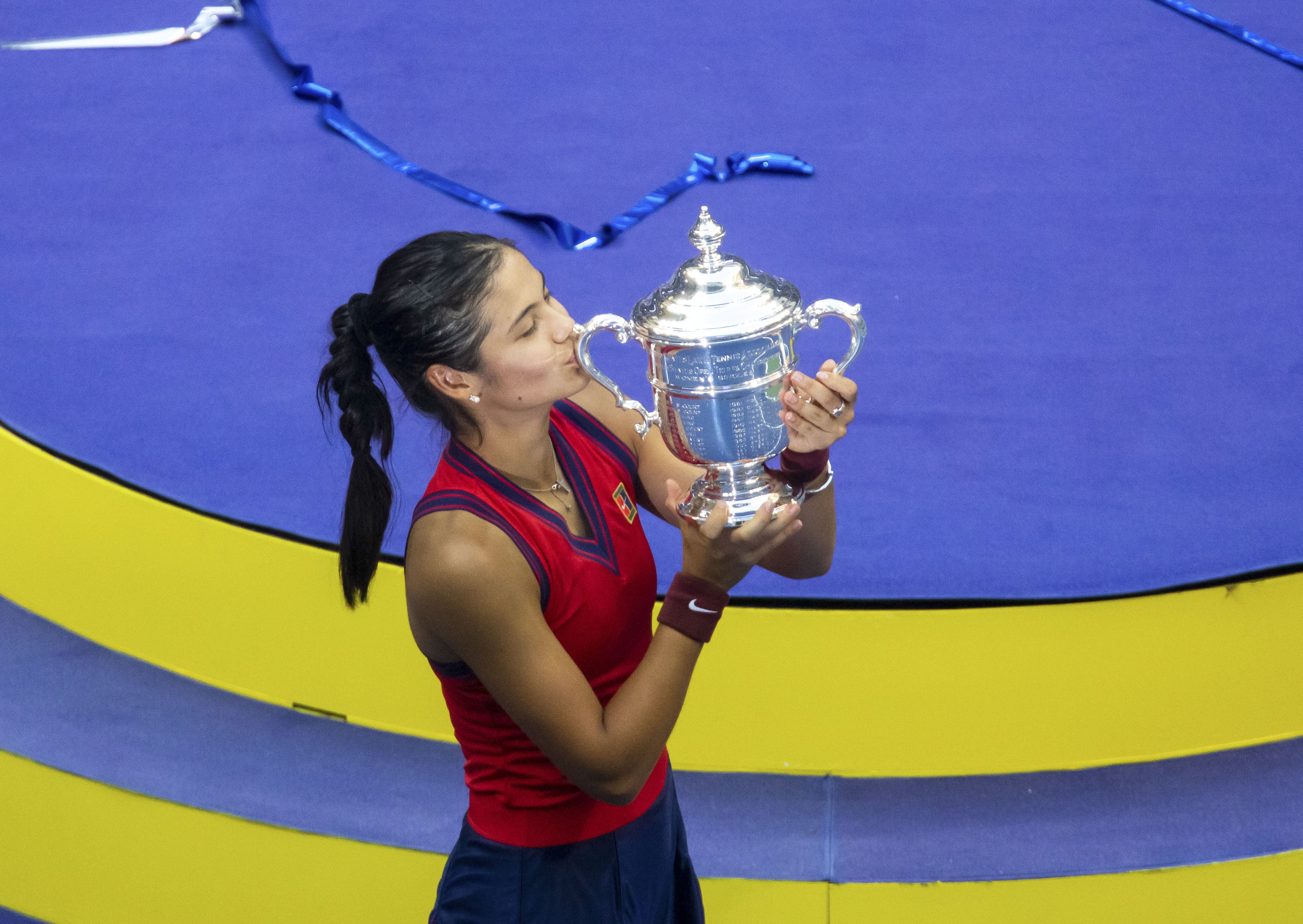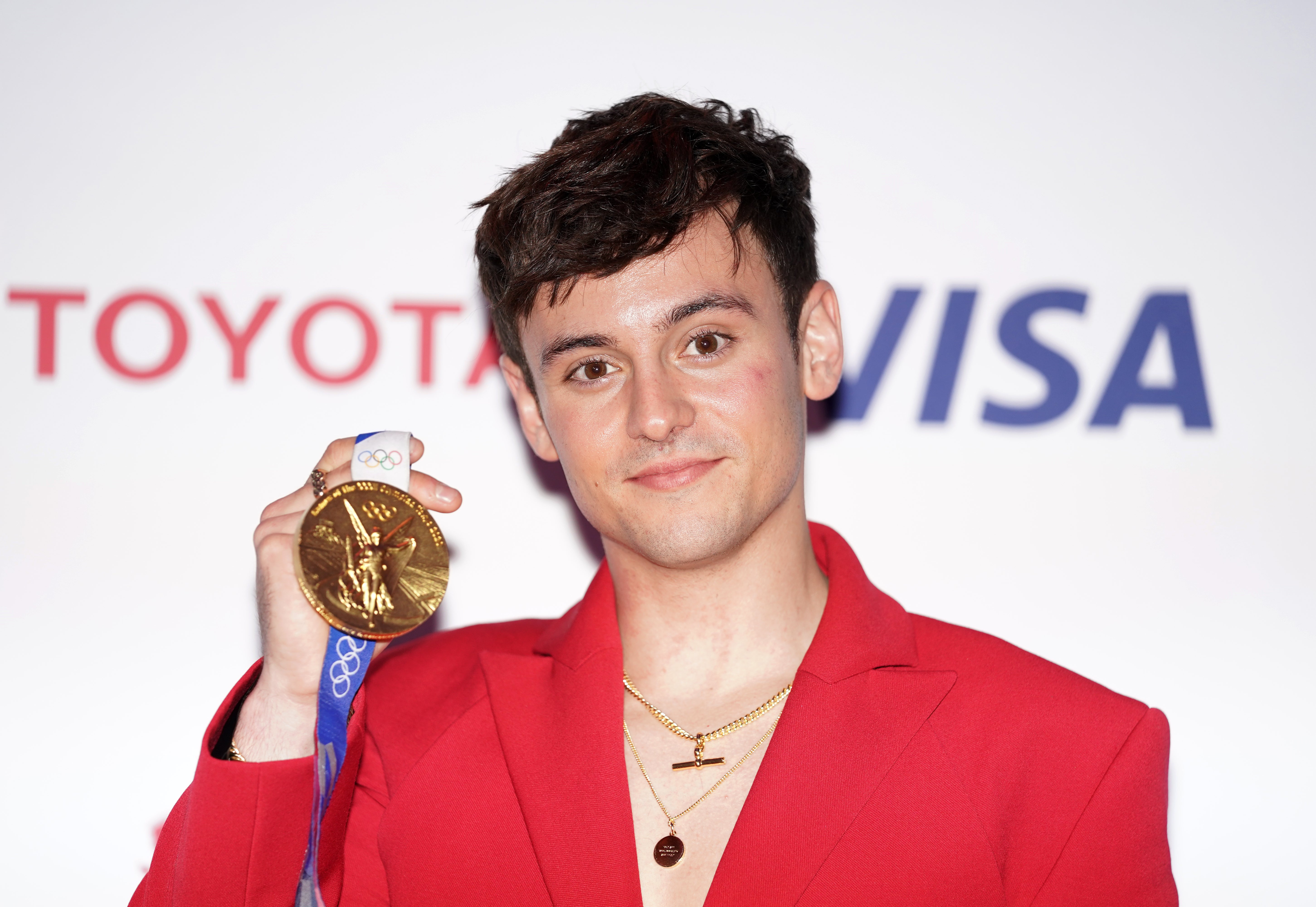Fans and players found their voice in 2021 after year sidelined in silence
The Super League scandal set the tone as spectators made their presence felt inside and outside stadiums

Your support helps us to tell the story
From reproductive rights to climate change to Big Tech, The Independent is on the ground when the story is developing. Whether it's investigating the financials of Elon Musk's pro-Trump PAC or producing our latest documentary, 'The A Word', which shines a light on the American women fighting for reproductive rights, we know how important it is to parse out the facts from the messaging.
At such a critical moment in US history, we need reporters on the ground. Your donation allows us to keep sending journalists to speak to both sides of the story.
The Independent is trusted by Americans across the entire political spectrum. And unlike many other quality news outlets, we choose not to lock Americans out of our reporting and analysis with paywalls. We believe quality journalism should be available to everyone, paid for by those who can afford it.
Your support makes all the difference.This was the year when sport truly rediscovered its voice.
The hollow echo of empty venues, devoid of spectators, became the unwanted calling card of sport in 2020, as the coronavirus pandemic tightened its grip around the globe.
By the spring of this year those fans began to be heard again – initially outside rather than inside the venues.
A group of 12 elite football clubs, including England’s so-called ‘Big Six’, finally pulled the trigger on plans to form a European Super League.
It quickly became clear the rest of football was uniting against them – their Premier League rivals, Uefa, Fifa and even the British government. But they had also clearly not taken the pulse of their own fans, whose outrage was unequivocal.
Within days, the league had collapsed. Those who still back it – Barcelona, Real Madrid and Juventus – continue to talk it up, and it will be for the European courts to decide ultimately whether Uefa abused a dominant position to block its formation.
Fans’ voices returned to football stadia as spring turned to summer, most memorably at Wembley as Sweet Caroline became the soundtrack to England’s run to the Euro 2020 final and raised hopes of a first major men’s tournament success for England since 1966.
The run ended in chaotic, ugly scenes at the final itself and with vile abuse spouted on social media in the aftermath, as a tiny minority turned on the men brave enough to step up for their country and take penalties when it mattered most.

The voice of the majority was heard loud and clear when Arsenal and Brentford fans gave one of those men, Bukayo Saka, a rousing standing ovation as supporters were fully welcomed back for the start of the Premier League season in August.
The voice of fans was heard too in a significant piece of work led by Conservative MP Tracey Crouch. She and her panel heard over 100 hours of evidence in putting together 47 recommendations to reshape how football will be governed.
These reviews have happened before – but there is real confidence that this time it will not be filed away in a drawer or kicked into the long grass.
Azeem Rafiq gave voice to those who he believes have been suffering in silence within his sport, cricket, in a powerful and harrowing appearance before a parliamentary committee in November.
His courage in blowing the whistle on the racist abuse he experienced at Yorkshire led to a commission calling for evidence of discrimination within the sport being inundated.
The Independent Commission for Equity in Cricket (ICEC) has vowed to hold a mirror up to the sport when it publishes its findings next year. Cricket may not like what it sees, but has to change.
Rugby league faces turbulence too after a group of former players suffering from early-onset dementia voiced concern about what they see as the failure of their sport to sufficiently protect them from the risks of concussion and sub-concussive injuries.
Tennis star Peng Shuai had the courage to speak out and allege she had been the victim of a sexual assault at the hands of a senior Chinese government official.
Despite attempts by the International Olympic Committee – which takes the Winter Games to Beijing in February – to assuage fears that Peng is being silenced by the regime, many within her sport, and others, remain deeply concerned for her safety.
Tennis did provide arguably Britain’s sporting highlight of the 2020s so far as Emma Raducanu became the first qualifier to win a grand slam with her US Open triumph.

The noise of the New York crowd was deafening as the world number 150 sent down an ace on championship point. Her achievement in winning the tournament without dropping a set is one of the great all-time fairytales of British sport.
A very different sporting idol also enjoyed Stateside success as Tyson Fury ended his trilogy against Deontay Wilder on top in Las Vegas.
Britain’s Tokyo Olympic and Paralympic heroes and heroines lit up the summer, although Covid restrictions in Japan denied them the chance to compete in front of crowds, or families and friends.
For every medallist it was a triumph over adversity, after the postponement of the Games by 12 months led to preparation plans being torn up.
Tom Daley’s gold medal success, 13 years after his first Olympic appearance, in the 10 metre synchro platform diving was one of the most memorable moments of the Games from a British perspective.

He then used his voice on a very different platform – the Attitude Awards in October – to call on the IOC to ban any country where homosexuality is punishable by death from future Games.
As we head into 2022, athletes and spectators alike are expected to be vocal again, to highlight World Cup hosts Qatar’s record on migrant workers and to seek to change attitudes towards the LGBTQ+ community in the Gulf state.
The IOC and China should also expect athletes to continue to speak out over the alleged genocide of Uighur Muslims in the country, as the Winter Olympics draw closer.
As 2021 ends, the omicron variant casts a fresh shadow over what has felt like a return to something approaching ‘normal’ in sport.
But one way or another it seems certain that those who play and watch it will not fall silent.
Join our commenting forum
Join thought-provoking conversations, follow other Independent readers and see their replies
0Comments